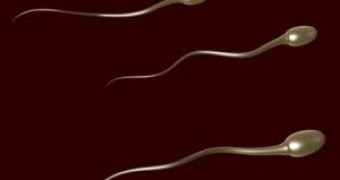According to a report published today, medical experts at Newcastle Durham NHS Institute for Stem Cell Biology and Regenerative Medicine have successfully developed artificial sperm from stem cells. They used it to fertilize rat eggs and obtained live births from mice in the laboratory. Rat embryonic stem cells were modified and turned into artificial sperm which was then used to fertilize eggs and led to the births of seven little mice.
This gives high hopes for treating infertility in men, as the scientists want to develop human sperm that has exactly the same features as natural sperm in men, but this one will be obtained from scratch.
The stem cells were extracted from 3 days old male mice and then chemically turned in the lab into sperm. In the process of transformation there were used chemical growth factors, the most important being retinoic acid that was found to be able to modify stem cells into sperm cells. Afterwards, the sperm cells obtained were left to grow into mature ones in order to imitate exactly the fertilization process and then injected into mouse eggs.
There have been 210 eggs fertilized with lab obtained sperm, out of which only 65 proved to develop a successful artificial insemination. Of the 65 fertilized eggs only 7 led to live births. "The efficiency at the moment is very low. We are able to get a lot of sperm, but at the later stages, we got far fewer embryos," former leader of the study Dr. Karim Nayernia said.
However, the research is not complete and is not yet ready to be carried out on humans, especially because all of the seven mice offsprings that were born recently presented anatomic abnormalities. All of them were infertile, manifested severe respiratory and locomotors disorders, developed too large statures or became stunt. Also, all of them died within a 5 months period from being born, as compared to the average 2 years lifespan of healthy mice.
Professor Karim Nayernia, who conducted the research at Georg-August University in G?ttingen before it was moved to Newcastle, stated: "For the first time we have been able to produce sperm in vitro, and use these sperm to fertilize eggs and get live births in animals." He also added: "We will need to do much more work before we can be sure this would be safe to do in humans."

 14 DAY TRIAL //
14 DAY TRIAL //